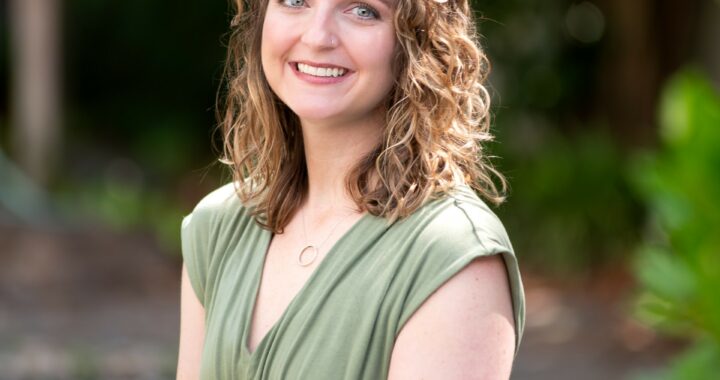Weeks in Morocco
4 min readBy Andrea Nealon
Patches of sunlight peek between the awnings of an awakening Moroccan marketplace, illuminating tiny flecks of dust that stir with the hustle and bustle of the locals. A young woman with a light olive complexion peers from behind the fabric of her hijab at the beautiful displays of jewelry, clothing and pottery.
She chooses a handmade pair of dangling silver earrings and barters with the shopkeepers in such well-spoken Arabic that they do not even guess that she is an American college student.
University of Mary Washington senior Mikey Pride donned a hijab, the traditional head scarf worn by Muslim women, in order to maintain modest dress in the presence of unfamiliar men. As a foreigner in the Middle East, covering her face in public was one way in which she assimilated to traditions set forth by the Qur’an as a gesture of respect for Islamic culture.
Pride spent six weeks studying in Morocco as part of the anthropology department’s Arabic study abroad programs this past summer. Exploring the Medina Qadima, or the old city, was one of her favorite pastimes.
“I got to watch products being made by hand in the shops,” Pride said. “The Medina Qadima itself looked like something out of ‘Aladdin,’ with donkeys and camels and people crowding the small, narrow streets of the city.”
Her interest in Arabic culture is homegrown.
“My mom’s parents are Syrian, so I was raised in a very Middle Eastern household,” Pride said. “I fell in love with the language, food, music and culture, and it has kept going from there.”
Being an American in the Middle East, especially during wartime, Pride gained valuable insight into the Arab perspective on American culture.
She pointed out a common generalization that Middle Easterners make, which is that Americans are greedy and immoral. On the other hand, Pride notes the stereotypes that some Americans make.
“I hear people say Arabs are ignorant, backwards terrorists,” Pride said.
When asked about the relations between the U.S. and the Middle East, the one word that came to mind was “misunderstanding.”
“They don’t understand our culture, and we certainly don’t understand theirs,” she said.
She enjoyed being an American in Morocco because she was able to dispel the stereotypes by simply being herself.
“Everyone wants to talk to you and ask you what your life is like,” Pride said. “They like to see real Americans.”
While in Morocco, she found that most people she encountered were very welcoming and family-oriented.
“People sit with each other in the living room and just talk. It’s a very warm, comfortable atmosphere,” she said.
When not utilized for social gathering, the living room is also used as a space for prayer.
While at the American Language Institute in Fès, Pride studied Arabic for six hours a day, and Moroccan Culture for two hours every other day alongside students from Oxford, Harvard, Yale, Cambridge and Rutgers.
Pride was surprised to learn that many students from the other universities were Jewish.
“Because of the Arab-Israeli conflict there is a lot of stress on the relationship between the Jewish and Arab communities,” said Pride. “It was cool to see a dialogue of mutual friendship develop between some of the Moroccan students and the Jewish students.”
On the weekends, Pride and the other students visited ancient Roman ruins, learned how to cook Moroccan food, and even rode camels into the Sahara Desert.
One weekend excursion to the Sahara Desert turned out to be more than Pride bargained for. While waiting for a sandstorm to pass, the guides lined up the camels and their riders into several caravans. Pride recalled hearing a strange sort of gurgling, shrieking noise coming from behind her.
“I thought one of the camels was either dying or giving birth, I couldn’t tell,” she said. “Turns out, the last camel in line was drinking the urine of the camel in front.”
Now back in the states, Pride has resumed her routine of classes, work at a Fredericksburg Starbucks, and practice for the UMW swim team.
Starting in January, Pride will begin working as an intern at the Moroccan-American Cultural Center in Washington, D.C.
“The first four months it is a paid internship, and if things go well, I’m almost guaranteed a job,” Pride said.
She will be attending events concerning U.S. and Middle East affairs and translating documents from Arabic to English.
“Morocco was kind of an accident,” Pride said. “The only program offered for Arabic was to Morocco, so I went. And I’m really glad I did.”


